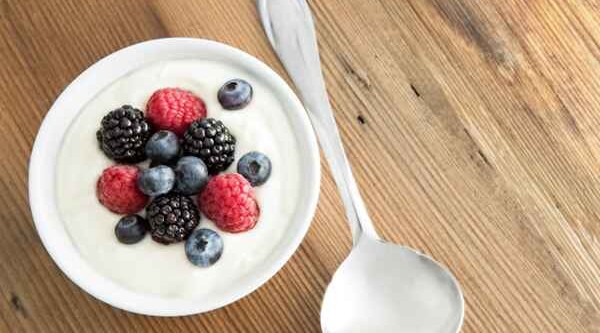What to Look for in Yogurt
İnteresting
16:56 18 Apr, 2022
Considered "good bacteria" for the gut and can help maintain healthy digestive systems

What is cool, creamy and delicious? Yogurt! Even better, it is a great part of a healthy diet for kids and adults. Yogurt is rich in protein and contains calcium and potassium. Some yogurts contain live, active bacteria cultures, as indicated on the label. These cultures, or probiotics, are considered "good bacteria" for the gut and can help maintain healthy digestive systems.
What Kind of Yogurt to Buy? Qazet.az presents this information.
- Whole Milk, Low-Fat or Fat-Free? Overall, it is best to choose low-fat or fat-free yogurt as recommended by the Dietary Guidelines for Americans and MyPlate. There are many delicious low-fat and fat-free options to choose from.
- Fruited, Flavored or Plain? Added sugar is a common ingredient in fruited and flavored varieties of yogurt. Skip the added sugars by choosing plain yogurt and adding your own fruit or flavors such as cinnamon and vanilla. When you read the Nutrition Facts label on plain yogurt, you still will see that it lists "sugar" even though no sugar has been added. This is because even plain yogurt contains lactose, the naturally occurring sugar in milk.
- Greek Yogurt or Traditional Yogurt? Greek yogurt is strained. This process makes it thicker, creamier and smoother than traditional yogurt. It also has double the protein of traditional yogurt, but reduced calcium. In both traditional and Greek yogurts, bacteria cultures help break down lactose, so yogurt is sometimes an easier dairy food to digest for those who are lactose intolerant. Greek yogurt has less lactose than traditional yogurt, so lactose-sensitive individuals may tolerate it even better than traditional yogurt.
- Dairy or plant-based? Whether you cannot or choose not to consume dairy, the good news is there are loads of plant-based dairy alternatives on the market. Be sure to look for versions that are fortified with calcium and vitamin D. Fortified soy-based yogurt has the closest nutrition profile to dairy-based yogurt while coconut milk and almond milk varieties are lower in protein.
